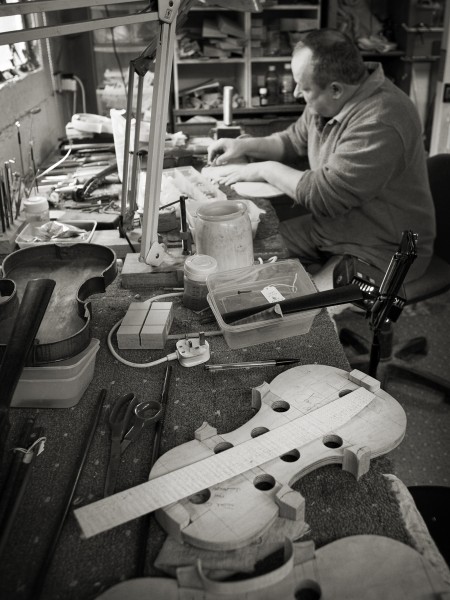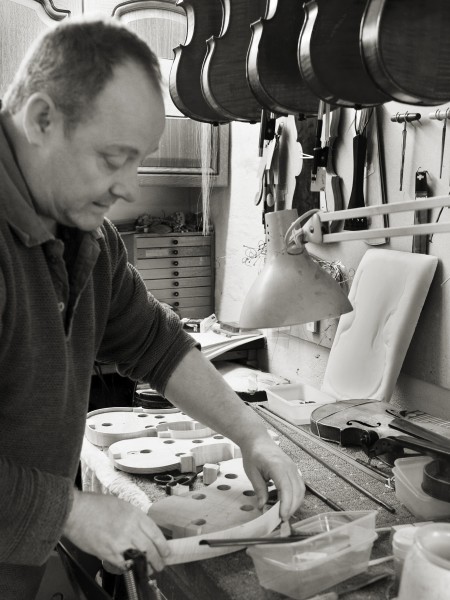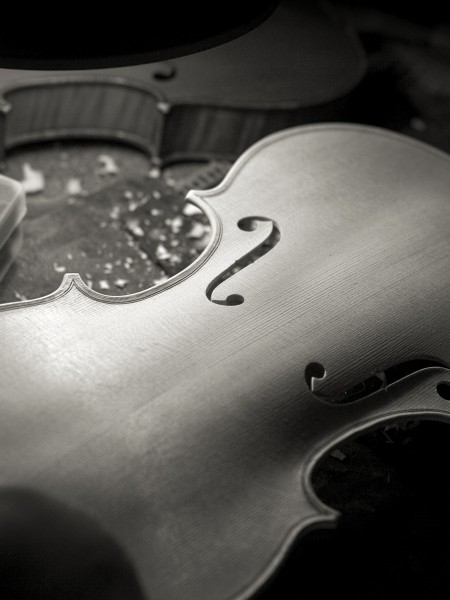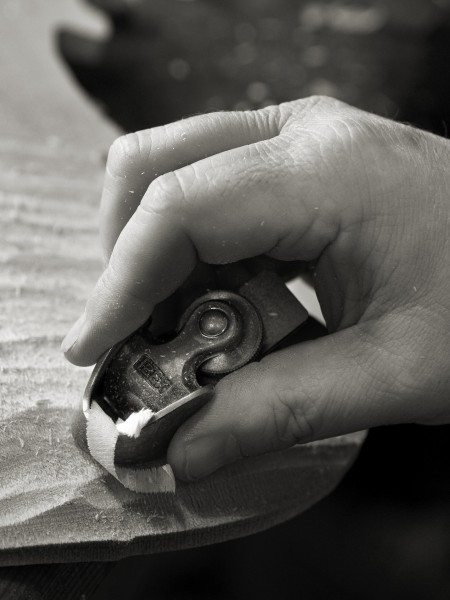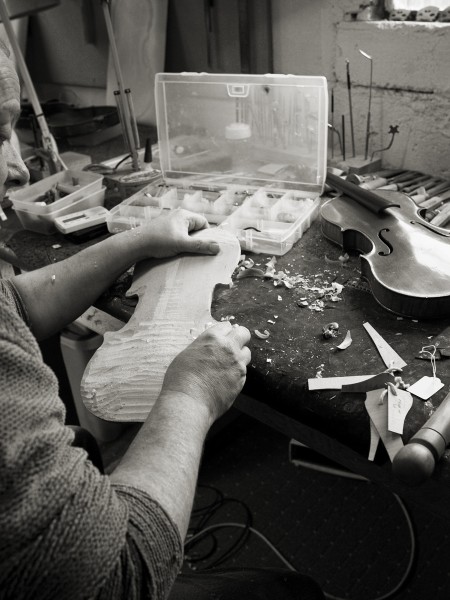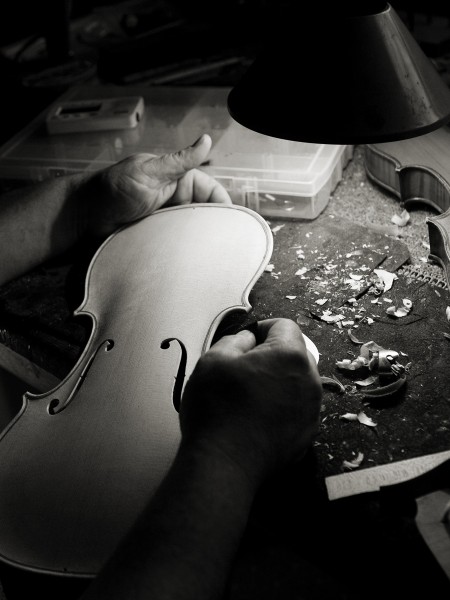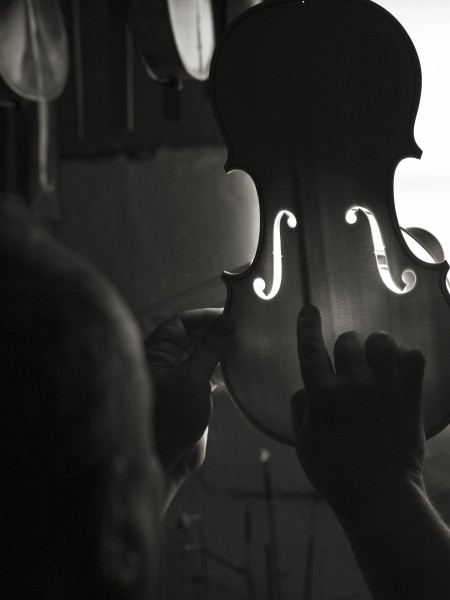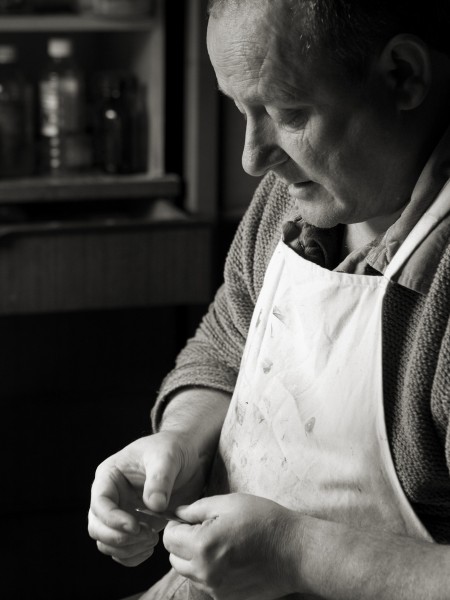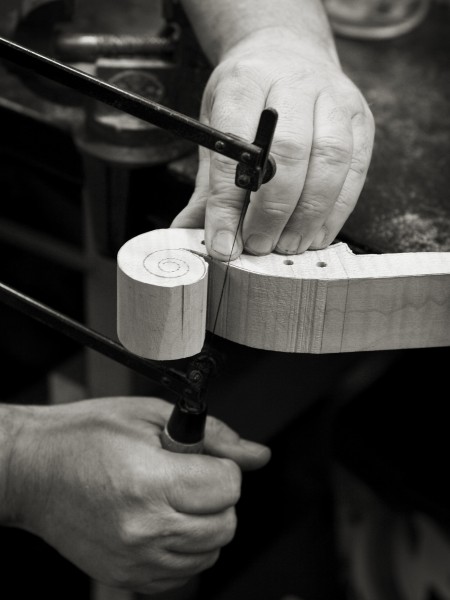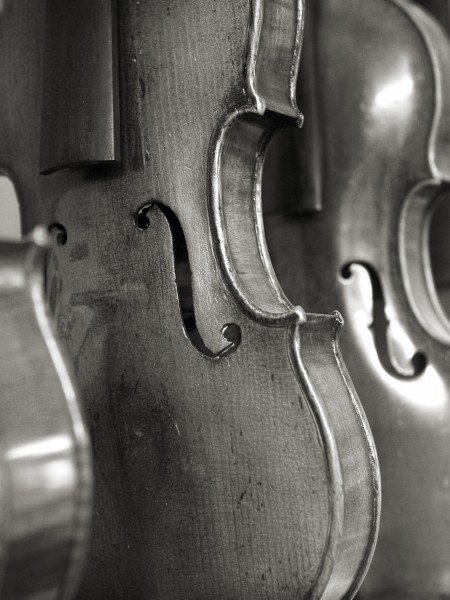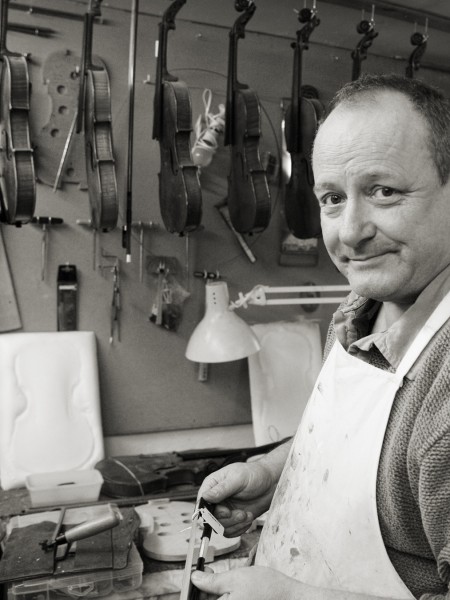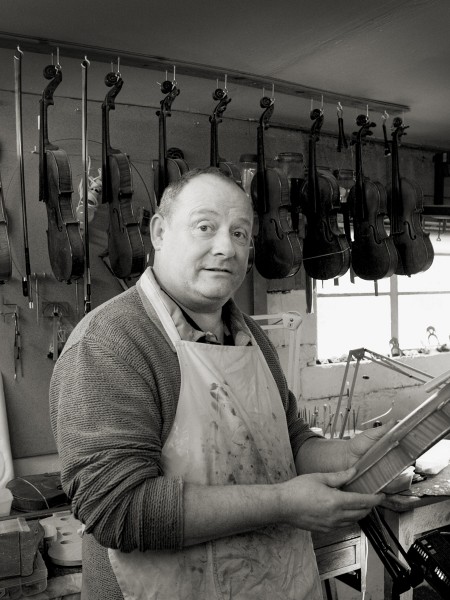Q. What is your principle professional skill?
A. Maker of Stringed instruments and restorer of Violins, Violas and Cellos.
Making violin bows, repairing and rehairing.
Q. Can you tell us a little about it?
I follow the Italian principles of Violin making using only traditional methods used by the masters. Using only the finest materials.
Q. How long have you been practising your skill?
A. I’ve been making instruments since 2004.
Q. How did you learn your skill?
A. I studied at the internationally acclaimed Newark School of Violin Making where I studied under Pat Jowett in violin making and Paul Gosling in the repairs and restoration.
Q. How long did it take?
A. The course starts in year 1 by making a Viola D’ Amore making a six string instrument from the baroque period.
Year 2 you make your first violin with an option to make a second.
Year 3 Is varnishing, making a Viola and studying acoustics.
Year 4 Final year is making a cello and pre-test violin. The final exam violin, which takes 5 weeks to complete, for the coveted Beares diploma and Newark Diploma.
Q. Are there any other people in the region doing what you do?
A. Marshall Dow of Aberdeen, who makes great mandolins, and David Duthie of Kemnay.
Q. How important do you think your skill is for the region?
A. I would like to think that the skills I have could be passed down for future generations and not be lost. In the past, the Aberdeen area was abundant in excellent and talented makers that were lost because of overseas competition and cheap imports. This not only affected this area but the whole of the UK
Q. How has your profession evolved over the last few decades?
A. It’s not evolved much, for example I use traditional glue that is reversible, hide glue which is soluble in water, it’s been around for centuries. Nowadays there are lots of Chinese imports which are low quality and can’t be restored. Some of their instruments are made with some sort of white glue that isn’t reversible and unfortunately these are made with good wood but treated as a disposable item. Their instruments are made so thin, this produces a good sound now but will not last. Past makers had the same problem and their instruments need constant repairs
Q. What are the main differences between now and when you started?
A. Shortcomings of the way the industry wants to go, mass production which is against craftsmen. Some customers’ lack of product knowledge. But if it gets children playing an instrument then that’s a good thing, regardless of competition. Making violins and other instruments is an evolving learning process and I’ll never stop learning.
Q. How do you anticipate the future to be for your skill?
A. I am passionate about violin making. It depends on whether an individual has that hunger for it and if you want to pass on the skills. The skill focused me on what the wood can do, the beauty of the wood, I can tell who the maker is. I want to make the best for the violinist, it’s an emotional rollercoaster. Modern violins are destroying forest for profit.
Q. How important do you think it is to pass the skill on to the next generation?
A. Incredibly important.
Q. How could that be achieved?
A. I’ve still to find someone who is as passionate as I was when I first started. So until then I’ll keep looking for that someone!
Q. Would you be prepared to train someone?
A. I have done. I would like to take on an apprentice, for them to work for a master as I did. But the student has to get the fundamentals and need to get them from school and learn the craft.
Q. Do you think that society should feel obliged to find a way of preserving such skills?
A. No.
Q. Does having a skill change the way you see the world?
A. Very much so, and when I hear someone playing an instrument I’ve made I wonder if it’s all real.
Q. What kind of rewards do you get from your skill, monetary and/or otherwise?
A. Seeing the smile on the client’s face when I’ve transformed the sound of their violin. The process of repairing and restoring a violin is very emotional. If you think you’re going to get rich with violin making then you’re in the wrong game, and you won’t, it’s a way of life!
Q. What impact has broadband and the internet had on your work?
A. It has opened it up. I can research instruments online, find information, make valuations. I recently found a very rare book on varnish on the internet.
Also for example there are people all over the world that are friends now because of instrument making. I have clients in Australia, the USA and Canada. It’s brilliant.
Q. What, if anything, could be done to help preserve your skills and support your profession?
A. It would be great if people could spend their money locally if they can, but I’m a realist so all I can do is more promotion of the skill.
